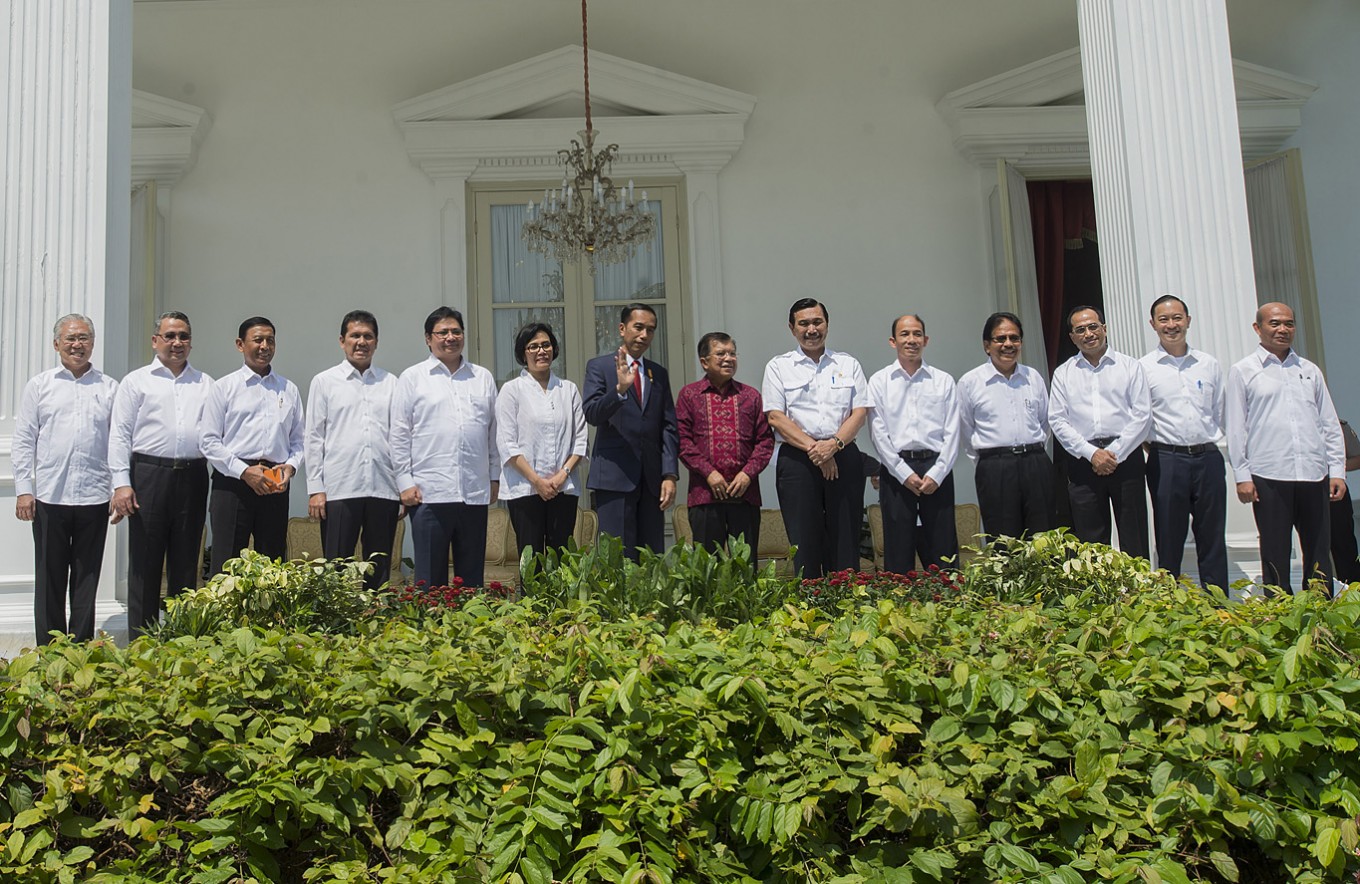Popular Reads
Top Results
Can't find what you're looking for?
View all search resultsPopular Reads
Top Results
Can't find what you're looking for?
View all search resultsRecent Cabinet shake-up better than the last: Analyst
Change text size
Gift Premium Articles
to Anyone
P
resident Joko "Jokowi" Widodo’s Cabinet shake-up on July 27 was better than the previous one, a political analyst has said.
Indonesian Institute of Sciences (LIPI) senior political analyst Syamsuddin Haris said Jokowi had thoroughly considered the performances of his Cabinet members before replacing some, making high-quality work a factor in the selection process.
"This isn't an easy task for the President, because his Cabinet is not only [about political representation] but also based on regional and mass organizations. Thus, it is impossible to have a Cabinet shake-up that can satisfy everyone," Syamsuddin said during a discussion in Jakarta on Friday.
Whether the latest Cabinet could handle the challenges the government was facing would depend on its consistency in implementing the government’s development agenda, including economic stimulus packages aimed at accelerating economic growth and raising state income, he went on.
Syamsuddin said the recent Cabinet shake-up was not fully Jokowi's initiative, and this reflected in the composition of the new Cabinet.
Jokowi’s new Cabinet, he said, could be seen as a political measure to accommodate new ministers from two political parties. These are the National Mandate Party (PAN) and the Golkar Party, which were previously members of the opposition camp, the so-called Red and White Coalition.
Representing PAN was new Administrative and Bureaucratic Reform Minister Asman Abnur, who replaced Yuddy Chrisnandi, while Golkar’s representative, Industry Minister Airlangga Hartarto, replaced Hanura Party politician Saleh Husin, Syamsuddin elaborated.
He added that the new Cabinet also involved professionals, as seen in the appointment of Finance Minister Sri Mulyani Indrawati, a former World Bank managing director who had served as finance minister in the previous administration.
The analyst said that composing the new Cabinet also could not be separated from the oligarchic power of Megawati Soekarnoputri, the chairman of the Indonesian Democratic Party of Struggle (PDI-P). Vice President Jusuf Kalla also played a role in the Cabinet shake-up, although his influence was not too big.
Although Jokowi’s leadership was getting stronger, Syamsuddin said, there was no guarantee the new Cabinet could support his presidency until 2019.
“It is all about trust. Jokowi's coalition is based on trust among leaders of government-supporting political parties and the political compensation," Syamsuddin said. (ebf)










